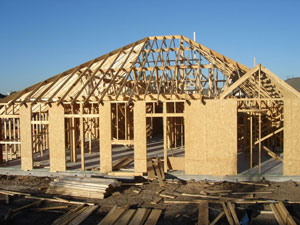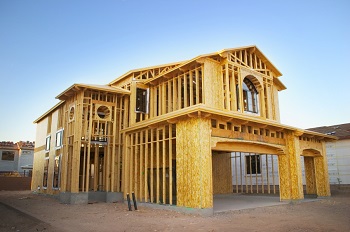Considerations for Building a Home
By Sari R. Updated on 7/19/2017Project Future Problems
When deciding neighborhood, homebuyers should be future-minded to rule out any possible deterrents to home buying. For example, even though the home has not yet been built, homebuyers can discuss with builders to make sure that sunlight will hit the house in the right direction.
Other potential issues include noise and proximity to neighbors.
Explore Premade Floor Plans
New homes will sell before they are even built! To accomplish this, home builders will build several model homes with different floor plans and will attempt to get a buyer to commit to a particular home.
Most new homes aren’t listed in the MLS Directory, so it’s a good idea for homebuyers to talk to their real estate agents to make sure they are in the know.
Negotiate a Discount
Early buyers of new homes often have the advantage of being able to negotiate the buying price down a little bit. This is because builders need to be able to meet certain requirements and quotas so they can report back to their lenders and request more money to build more houses in the neighborhood.
Therefore, homebuyers who are among the first to look at those lots are often given a little bit of financial leeway, as the builders are primarily concerned with selling a set number of houses.
Understand the Contract
When you sign on that dotted line for the construction of your new house, understand the contract. You should have already completed all negotiation with the builder before this step--anything agreed upon after the signing can be added on, but will likely cost you additional amounts of money, which is something many people building a new house don’t budget for in their mortgages.
Look Up Building Codes
Get familiar with your local building codes. Very familiar. Question anything on your site that doesn’t look right, because this is your house and your investment. Require proof of compliance, which you may be asked to show inspectors. Seek outside advice if needed from a reliable source.
Conserve on Costs
It’s always important to keep costs in perspective when building a new house. On average, a house is 1500 to 2000 square feet. Although it can be tempting to think of lots of spare room in your house, do you really need it? Paring down can save you thousands.
Being aware of frivolous extras that are often suggested by builders is another way to save--of course, that hot tub and extra skylights would be nice, but are they part of your original vision?
Prepare for Set Backs
Conflicts will inevitably arise during building a new house, whether simple misunderstandings or serious disputes. Be willing to hear input from your builders without shutting down their ideas, but don’t sacrifice your dream. Find a place of compromise. Errors and delays do happen but keep in mind factors that may be unreasonable, such as severe weather or supply shortages.
Document Everything
Documenting everything in the process of building a new house is essential. Verbal agreements are always hard to prove in the case of a dispute down the road. Follow up any discussion or verbal contracts with written verification, whether emails, sales slips, receipts, or contract addendums.
Laying out expectations before the start of a project and including them in the contract avoids conflict down the road.

Didn't find the answer you wanted? Ask one of your own.
Related Articles
Ask our community a question.
Searching Today's Rates...

Featured Lenders
Lisa Stepp
RBS Citizens
Clifton Park, NY
Kat Whitman
Whitman Met, Inc.
Sacramento, CA
Cameron Burke
Vision One Mortgage
Huntington Beach, CA




